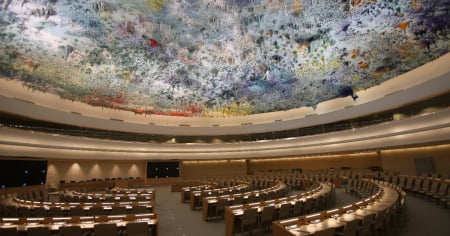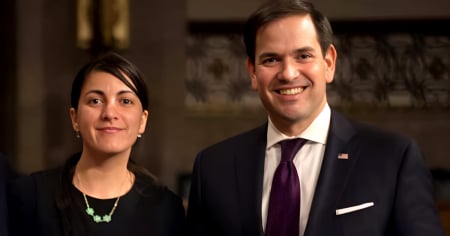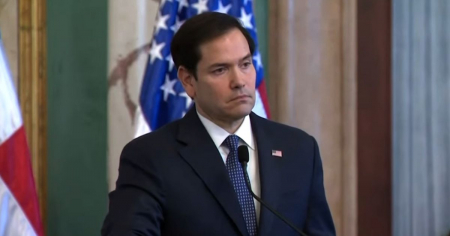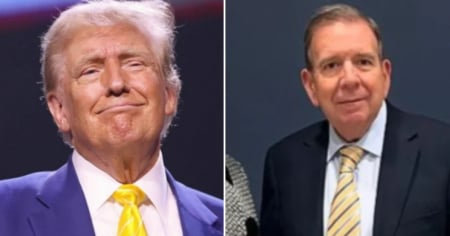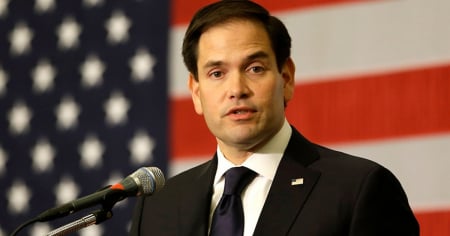Daniel Ortega's regime is strengthening its repressive apparatus in Nicaragua. The leader has sworn in 30,000 masked civilians as "volunteer police."
The opposition claims that these new agents are paramilitary forces aimed at quelling any attempt at dissent in Nicaragua.
The new recruits wore white shirts, hoods, and black pants. They formed their ranks in the Plaza de la Fe in Managua to raise their hands before Ortega and his wife, Rosario Murillo.
"We take an oath to this heroic volunteer police, guerrillas of peace," proclaimed Murillo, making the ideological nature of the measure clear.
This new repressive body is the result of a constitutional reform approved on January 30 by the National Assembly, which is completely controlled by the Sandinista National Liberation Front (FSLN). Since then, the government has added about 50,000 personnel from various provinces to strengthen control in the streets.
SWI cited a UN report, published in Geneva on the same day as the swearing-in, which reveals how the Nicaraguan government recruited former military personnel, ex-police officers, judges, and officials for this new shock force.
Ortega and Murillo will reaffirm Francisco Díaz, their father-in-law, as the head of the National Police of Nicaragua for another six years.
The protests of 2018 remain fresh in Ortega's mind
Human rights expert Reed Brody stated that these "volunteer police" evoke the role of the masked individuals who played a part in the repression of 2018, which resulted in over 300 deaths.
The Ortega regime used armed groups of hooded individuals to dismantle the barricades erected by the protesters. Since then, the Nicaraguan government has insisted that those demonstrations were not a popular expression, but rather a "coup attempt" orchestrated from the United States.
This Thursday, Nicaragua withdrew from the Human Rights Council of the United Nations (UN), in response to a recent report from the Group of Experts on its country (GHREN).
The text states that the Nicaraguan Army participated in the repression of the protests in 2018. Systematic human rights violations, extrajudicial executions, arbitrary detentions, forced exile, and political repression are documented. These figures contradict the official government narrative, and Ortega's reaction has been radical.
The inclusion of the 30,000 masked volunteers into the regime's forces only serves to strengthen the repressive apparatus of Ortega and Murillo, which already has the National Police and the Army to quell any opposition.
Daniel Ortega is 79 years old. He has established a "family dictatorship" alongside his wife Rosario Murillo, who is 73. They ended the event on Wednesday with a clear statement of their intentions: "We have the strength to transcend all challenges."
Frequently Asked Questions about the repression and the regime of Daniel Ortega in Nicaragua
Why did Daniel Ortega swear in 30,000 hooded volunteers?
Daniel Ortega swore in 30,000 hooded civilians as "volunteer police" to strengthen his repressive apparatus in Nicaragua. The opposition alleges that these new agents are paramilitary forces intended to stifle any attempts at dissent. This move is part of a constitutional reform that legalizes the creation of these groups and reinforces the regime's control over the country.
What role do "volunteer police" play in the repression in Nicaragua?
The "volunteer police" in Nicaragua have been created to act as paramilitary forces in the repression of dissent. Their role is to stifle any attempt at protest or resistance against Ortega's regime, reminiscent of the masked individuals during the repression of the protests in 2018 that resulted in over 300 deaths. This measure further consolidates Ortega and Murillo's authoritarian control.
What is the impact of the constitutional reform driven by Ortega in Nicaragua?
The constitutional reform in Nicaragua consolidates the absolute power of Daniel Ortega and his wife Rosario Murillo, eliminating the independence among the branches of state power. This reform introduces the position of co-presidents, extends the presidential term, and restricts freedom of expression. Additionally, it legalizes "volunteer police," strengthening the regime's control and undermining any form of internal opposition, which has been condemned by the international community.
What response has the international community given to the actions of Ortega's regime?
The international community has strongly condemned the actions of the Ortega regime, describing its constitutional reform as an "aberration" that institutionalizes a dictatorship. Organizations such as the OAS have urged the Nicaraguan government to restore democracy and hold free elections. Furthermore, Nicaragua's withdrawal from the UN Human Rights Council demonstrates the regime's refusal to submit to international scrutiny.
Filed under:

